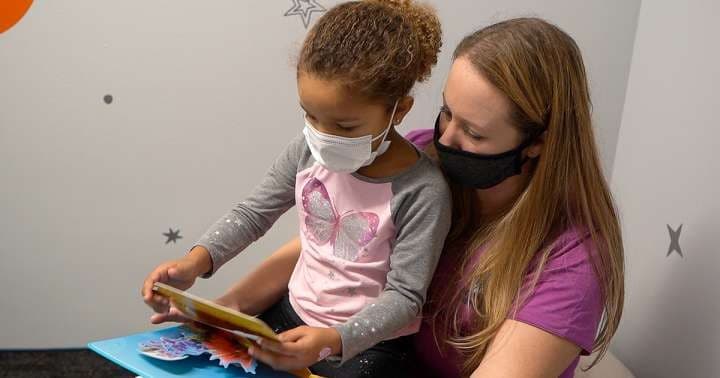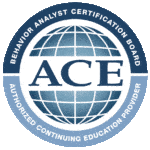Types of ABA Therapy Jobs and Their Degree Requirements
By: Melanie Bren, M.Ed., BCBA, LBA

While there are many avenues in which applied behavior analysis (ABA) can be used and implemented in the professional world, there are a few traditional types of ABA therapy jobs that can be found when working with individuals with disabilities. In order to practice in each respective position, you must meet and maintain certain requirements.
When providing services for individuals with autism, we typically see the following types of ABA therapy positions: behavior therapist (BT), Registered Behavior Technician (RBT), Board Certified Assistant Behavior Analyst (BCaBA), Board Certified Behavior Analyst (BCBA) and Board Certified Behavior Analyst-Doctoral (BCBA-D). Each position varies slightly from one another by educational requirements, certification requirements and maintenance requirements. The following outline of ABA therapy jobs is not exhaustive, however, these are typical ABA therapy jobs found in the realm of providing applied behavior analysis services to individuals with disabilities (i.e. autism spectrum disorder, intellectual disabilities).
Typical Types of ABA Therapy Jobs
- Behavior Therapist (BT)
- Registered Behavior Technician (RBT)
- Board Certified Assistant Behavior Analyst (BCaBA)
- Board Certified Behavior Analyst (BCBA)
- Board Certified Behavior Analyst-Doctoral (BCBA-D)
Behavior Therapist (BT)
A behavior therapist assists in implementation of a client’s treatment plan and under the direct supervision of the Board Certified Behavior Analyst. This includes implementation of skill acquisition goals, replacement behavior goals and behavior reduction goals. In order to be a behavior therapist, you must have a high school diploma and receive supervision from a qualifying professional.
Registered Behavior Technician (RBT)
A Registered Behavior Technician (RBT) is a paraprofessional with a certification in behavior analysis. Like a behavior therapist, a RBT assists in the implementation of a client’s treatment plan under the direct supervision of a Board Certified Behavior Analyst. A RBT differs from a behavior therapist in that a RBT has demonstrated competency in behavior analytic principles and has met strict eligibility requirements set forth by the Behavior Analyst Certification Board (BACB).
In order to be eligible to take the RBT exam, one must be 18 years of age or older, have a high school diploma, pass a background check, complete a 40-hour RBT training, complete a clinical competency exam, take and pass the exam and then maintain the yearly certification. In order to maintain certification, the RBT must receive ongoing supervision (typically from a BCBA) from a qualifying professional set forth by each state, adhere to the BACB Ethics Code for RBTs and renew their certification annually.
Board Certified Assistant Behavior Analyst (BCaBA)
A Board Certified Assistant Behavior Analyst is an undergraduate-level certification in behavior analysis. Like a behavior therapist and RBT, the BCaBA provides behavior-analytic services under the supervision of a Board Certified Behavior Analyst; however, BCaBAs are able to provide clinical services (assist with assessments, create treatment plans, etc.) that BTs and RBTs are unable to do. In order to be eligible to be a BCaBA, one must have an undergraduate degree, complete approved behavior-analytic coursework, complete supervised fieldwork (i.e. clinical hours) by a BCBA, take and pass the BCaBA exam, and maintain certification. To maintain certification, a BCaABA must meet continuing education requirements (CEUs), receive ongoing supervision, adhere to the BACB Ethics Code and recertify every two years.
Board Certified Behavior Analyst (BCBA)
A Board Certified Behavior Analyst (BCBA) is a graduate-level certification in behavior analysis. Clinicians at this level are considered independent practitioners who design and oversee a client’s treatment plan. A BCBA does not necessarily need to be supervised in the same way a BT, RBT and BCaBA need to be, however, it is best practice to continuously seek supervision in areas that are outside the BCBAs scope of practice. A BCBA typically supervises the services a BT, RBT and BCaBA provide to ensure the treatment plan is being implemented according.
However, it is not uncommon for BCBAs to provide direct services with a client! There are a few ways in which one can be eligible to sit for the BCBA exam. One must have completed graduate-level behavior analytic coursework from an accredited program, have a graduate-degree and have held a full-time faculty position in behavior analysis that includes research and teaching, or have a graduate degree from an ABAI (Association for Behavior Analysis International) accredited program. In addition to the aforementioned degree requirements, one must complete supervised fieldwork in applied behavior analysis with a qualifying supervisor.
Depending on the situation, the supervisee will complete either 2,000 hours or 1,500 hours (concentrated) of supervised fieldwork in which they will complete a range of “restricted” and “unrestricted” activities to gain necessary experience to prepare them to sit for the BCBA exam. While the candidate pursing certification (supervisee) is completing their fieldwork hours, they will meet with their BCBA supervisor every supervisory period to track progress and ensure competency.
Once the supervisee has completed their supervised fieldwork hours, they can apply to take the BCBA exam. In order to maintain a BCBA certification, the supervisee must meet continuing education (CEU) requirements, adhere to the BACB Code of Ethics and recertify every two years.
Board Certified Behavior Analyst-Doctoral (BCBA-D)
BCBAs with doctoral or postdoctoral training in behavior analysis may receive the designation of Board Certified Behavior Analyst-Doctoral (BCBA-D), however this designation is not a separate certification and does not grant the clinician any privileges beyond BCBA certification. A person holds the BCBA-D designation functions in the same capacity as a BCBA. Both certifications are able to practice as an independent practitioner providing behavior-analytic services. Additionally, a BCBA-D must meet all BCBA maintenance requirements.
The mentioned certifications (RBT, BCBA and BCBA-D) are nationally and internationally recognized certifications. However, many states take requirements to practice one-step further and require BCBAs and BCBA-Ds to be “licensed” by another governing agency (e.g. Board of Medicine, Board of Psychology). This license requires the practitioner to complete another application and background check for their respective state, but you do not have to take another exam in most cases.
Once a BCBA is licensed in their state, they are considered a Licensed Behavior Analyst (LBA) and have met all requirements to be an independent practitioner in applied behavior analysis. It should be noted that all states do not require a BCBA to be licensed and just by having the BCBA certification allows the clinician to practice independently.
Date Posted:
May 3, 2021
Share this blog
Categories
Recent Blog Posts








